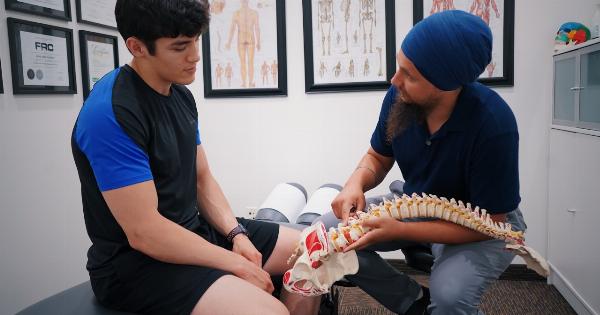A spinal cord injury (SCI) is a devastating event that can profoundly impact a person’s life. From physical disabilities to emotional challenges, individuals with SCI face numerous hurdles in their everyday lives.
In addition to medical treatments and rehabilitation, financial considerations also play a significant role in their recovery and overall well-being. This is where insurance benefits become crucial for SCI patients and their families.
1. Health Insurance Coverage
Health insurance is the primary source of coverage for medical expenses related to a spinal cord injury. It helps individuals pay for hospital stays, surgeries, medications, rehabilitation therapies, medical equipment, and ongoing care.
Most health insurance plans cover a portion of these expenses, but the extent of coverage varies widely. It is essential to thoroughly review policy documents and consult with insurance providers to understand the exact benefits and limitations.
2. Rehabilitation Services
Rehabilitation plays a critical role in the recovery of spinal cord injury patients. It encompasses physical therapy, occupational therapy, speech therapy, and other specialized interventions aimed at maximizing functional independence.
Insurance policies may provide coverage for a predetermined number of rehabilitation sessions, both inpatient and outpatient, based on medical necessity. However, certain limitations and prior authorization requirements may apply, necessitating careful navigation of the insurance landscape.
3. Assistive Devices and Medical Equipment
Spinal cord injury patients often rely on assistive devices and medical equipment to improve their mobility and quality of life. These may include wheelchairs, walkers, braces, bathroom aids, communication devices, and more.
Insurance plans typically cover a portion of the cost for these items, although coverage amounts can vary significantly. Patients need to communicate with their insurance providers to determine coverage eligibility and obtain necessary prescriptions or documentation from healthcare professionals.
4. Home Modifications
Living with a spinal cord injury frequently necessitates modifications to the home environment for enhanced accessibility. This may involve installing ramps, widening doorways, adapting bathrooms, and making other structural changes.
While not all insurance plans cover home modifications, some may offer partial or even complete coverage, specifically for medically necessary alterations. It is advisable to inquire about coverage options, obtain cost estimates, and engage in discussions with insurance providers to determine the available benefits.
5. Accessible Vehicles
Transportation is a crucial aspect of independence and community engagement for SCI patients. Accessible vehicles, such as modified vans or cars equipped with wheelchair lifts or ramps, offer the mobility required for a fulfilling life.
Insurance coverage for accessible vehicles varies significantly, and it is advisable to explore options carefully. Some plans may provide coverage for modifications to existing vehicles, while others may cover a portion of the cost for a new accessible vehicle.
Patients should consult with insurance providers and research available grants or financial assistance programs.
6. Home Healthcare Services
For individuals with severe spinal cord injuries requiring constant care, home healthcare services may be necessary. These services include nursing care, assistance with activities of daily living, wound care, and medication management, among others.
Health insurance policies may cover a certain number of home healthcare visits or allow for home healthcare reimbursements. Checking with insurance providers, understanding any applicable limitations, and obtaining necessary approvals are vital steps to access these benefits.
7. Mental Health Coverage
Spinal cord injuries not only impact physical health but can also have significant psychological and emotional consequences. Mental health support, including counseling and therapy, is essential for SCI patients and their families.
Many insurance plans include coverage for mental health services, including visits to psychologists or psychiatrists. It is crucial to verify mental health coverage and seek appropriate support to address the emotional challenges associated with spinal cord injuries.
8. Prescription Medications
SCI patients often require prescription medications to manage pain, muscle spasms, bowel and bladder function, blood pressure, and various other medical conditions.
While health insurance plans typically cover prescription medications, it is important to understand the coverage details. This includes copayments, formulary restrictions, prior authorizations, and any limitations on the duration or quantity of medications covered.
9. Vocational Rehabilitation and Disability Benefits
Spinal cord injuries can have a significant impact on a person’s ability to work or pursue their previous occupation.
Vocational rehabilitation services, including job training, career counseling, and assistive technology support, can help individuals re-enter the workforce or explore alternative employment opportunities. Additionally, individuals with SCI may be eligible for disability benefits such as Social Security Disability Insurance (SSDI) or Supplemental Security Income (SSI).
Navigating the application process for vocational rehabilitation and disability benefits is crucial to accessing the financial support available.
10. Legal Assistance
In cases where spinal cord injuries are a result of accidents or negligence, legal options may be available to seek compensation for the damages incurred.
Consulting with a personal injury attorney who specializes in spinal cord injury cases can help individuals understand their rights and explore potential legal avenues. While not a direct insurance benefit, pursuing legal action can provide the financial resources necessary for comprehensive care and quality of life improvements.



























